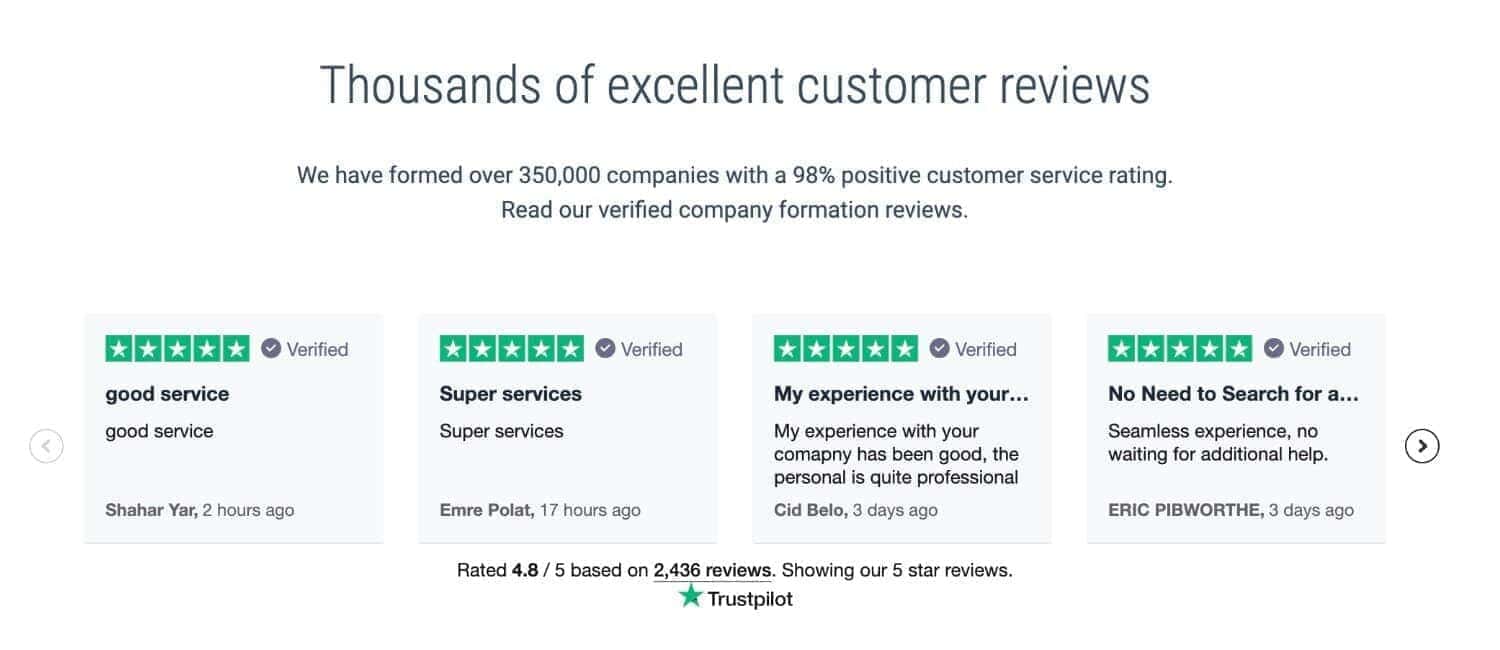Launching a new business is an exciting but often challenging time. One of the biggest hurdles is establishing credibility with potential customers. Without a proven track record, how do you show prospects that your business is trustworthy and reliable? The answer: customer testimonials.
In this guide, we’ll show you how to use testimonials to build trust in your new business. You’ll learn why they matter, where to place them, and how to collect impactful quotes that showcase the best of your business.
Key takeaways
- Customer testimonials act as powerful trust signals that help new businesses build credibility and reduce buyer hesitation.
- The effectiveness of a testimonial depends on its authenticity, specificity, and alignment with your target audience.
- Strategically placing testimonials across your website and marketing channels can significantly boost conversions and brand trust.
What are testimonials?
Customer testimonials are positive statements from former or current clients about a company, its products, or its services. They are vital in building trust and credibility and indicating the quality customers can expect to receive.
With the internet making it quicker and easier for potential customers to find a range of businesses that address their needs, many look to testimonials as a key decision-making factor. Reviews and testimonials have now become so essential that e-commerce sites that feature them have a higher conversion rate (67%) than those that don’t.
- 4 best social media management tools for SMEs
- Does your domain name have to match your business name?
- Navigating the first three years in business
It’s also important to make a key distinction. Customer testimonials and customer reviews are at times used interchangeably, and while both impact your business’s reputation, there is a difference:
- Customer testimonials – positive statements given by satisfied clients that are usually requested by a business for promotional purposes.
- Customer reviews – unsponsored opinions that reflect both positive and negative experiences posted by customers on public platforms, such as Google Business Reviews. These can, in some cases, be used as testimonials.
Now that you’re clear on what a testimonial is and why it’s important to a business, let’s get into the different types and how you can use them.
Types of testimonials
Client testimonials can come in various formats depending on what suits your business’s marketing needs. Here are five types of testimonials you can leverage for your small business:
- Written – these testimonials can be used on websites and marketing materials. They are usually short and easy-to-read endorsements that potential customers can quickly understand.
- Video – these represent a more dynamic and potentially more authentic format. They can feature real customers sharing their experiences or a blend of eye-catching visual quotes from a range of customers. Video testimonials can provide a personal touch that resonates with viewers and potentially increases your credibility.
- Social media – platforms like Facebook, X, LinkedIn, Instagram, and TikTok can be used to share and promote client endorsement posts to a wider audience. These testimonials can also be an effective way to foster community engagement.
- Case studies – these are articles detailing how you worked with a specific customer. Each case study can describe a customer’s journey with your business, including why they chose you, what they needed, and the specific benefits of using your products or services.
- Influencer endorsements – these involve social media influencers or industry experts endorsing your products or services. Given that they are already well-known, the right influencer can significantly boost your brand’s visibility and credibility.
How do testimonials help a business?
Customer testimonials are a form of social proof. These are psychological cues that help people make decisions based on what others say or do. When establishing your business, testimonials can act as your credibility currency. They help answer the question every potential buyer has: Can I trust this brand?
Using testimonials in marketing can achieve the following:
- Validate your offering – positive feedback from early users demonstrates that your product or service delivers on its promise
- Reduce risk – testimonials ease buyer hesitation by showing that others have had good experiences
- Create emotional connection – personal stories resonate more than features and benefits
- Boost conversions – pages with testimonials often have higher engagement and sales
With all the benefits of using testimonials, it’s worth investing time in collecting high-quality ones that are clear, specific, and aligned with your brand.
What makes a good testimonial?
Not all testimonials are created equal. The best ones are clear, specific, and believable. Here’s what to look for:
- Authenticity – use real names, photos, and business names where possible
- Specificity – instead of “Great service!”, aim for “They helped us register our company in under 24 hours”
- Outcomes – highlight measurable results or transformation
- Relatability – choose testimonials that speak to your target audience
How do I collect testimonials from clients?
If you’re still building your customer base, start small. Even one or two well-placed quotes can go a long way. Here’s how to start collecting impactful testimonials:
Ask at the right moment
Timing is everything. The best time to request a testimonial is:
- After a successful project wrap-up
- Upon receiving positive feedback via email or social media
- Immediately after a repeat purchase or renewal
By requesting at these times, you’ll get a customer who has their positive experience fresh in their mind and can give more detail to make their testimonial as impactful as possible.
Make it easy
Use simple, direct asks:
- “Would you mind sharing a quick quote we can feature on our website?”
- “Can you tell us what you liked most about working with us?”
You can also use forms, short surveys, or follow-up emails. Tools like Typeform or Google Forms can help streamline the process.
Provide a prompt
Guide the testimonial with helpful prompts:
- What problem were you trying to solve?
- How did our product or service help?
- What results did you achieve?
Prompts like these can save time, not just for you, but also for the customer you’re asking.
Offer incentives
While testimonials should always be authentic, a small thank-you gift (e.g., a discount code, freebie, or shoutout) can encourage responses.
Train your team to collect testimonials
Teach your employees how to weave customer reviews into their conversations to make interactions more impactful. Sales and service teams can use testimonials to build trust and strengthen their message. Provide clear instructions on when and how to use these reviews during discussions.
Where to place testimonials on your website
Strategic placement is key to using testimonials in marketing effectively. Think about where users may feel uncertain or need reassurance. Here are five places you can display them:
- Product or service pages – place testimonials that align with each offering to reinforce value
- Pricing page – include testimonials that address affordability and return on investment (ROI)
- Checkout or lead capture pages – use a final push to reduce hesitation and boost conversion
- About page – mix in testimonials with your founder story to build emotional resonance
- Homepage – add trust signals early to make a strong first impression. Here’s an example of using positive reviews as testimonials from the QCF homepage:

Using testimonials in marketing beyond your website
Your website isn’t the only place where testimonials can build trust. Here are four more places you can make an impact with customer testimonials:
- Social media – share quotes in branded graphics and use video testimonials in reels or stories
- Email marketing – add testimonials to welcome emails or product announcements
- Sales collateral – include testimonials in pitch decks, brochures, and proposals
- Landing pages and ads – align testimonials with campaign messages for higher click-through rates
Whether it’s a social post or a product pitch, placing testimonials in the right context can significantly boost their impact.
Start using testimonials as a trust signal today
Now you know how to use customer testimonials effectively – in the right formats and places – you can start gathering targeted feedback and lay the foundation for a credible, customer-first brand.
If you’re focusing on establishing trust and credibility in your new business, start by registering it as a limited company. Already running a limited company? Discover our address services. Get all the essentials you need to start your business with Quality Company Formations.
Take a look at our blog for more helpful insights, including navigating your first years in business.














Join The Discussion